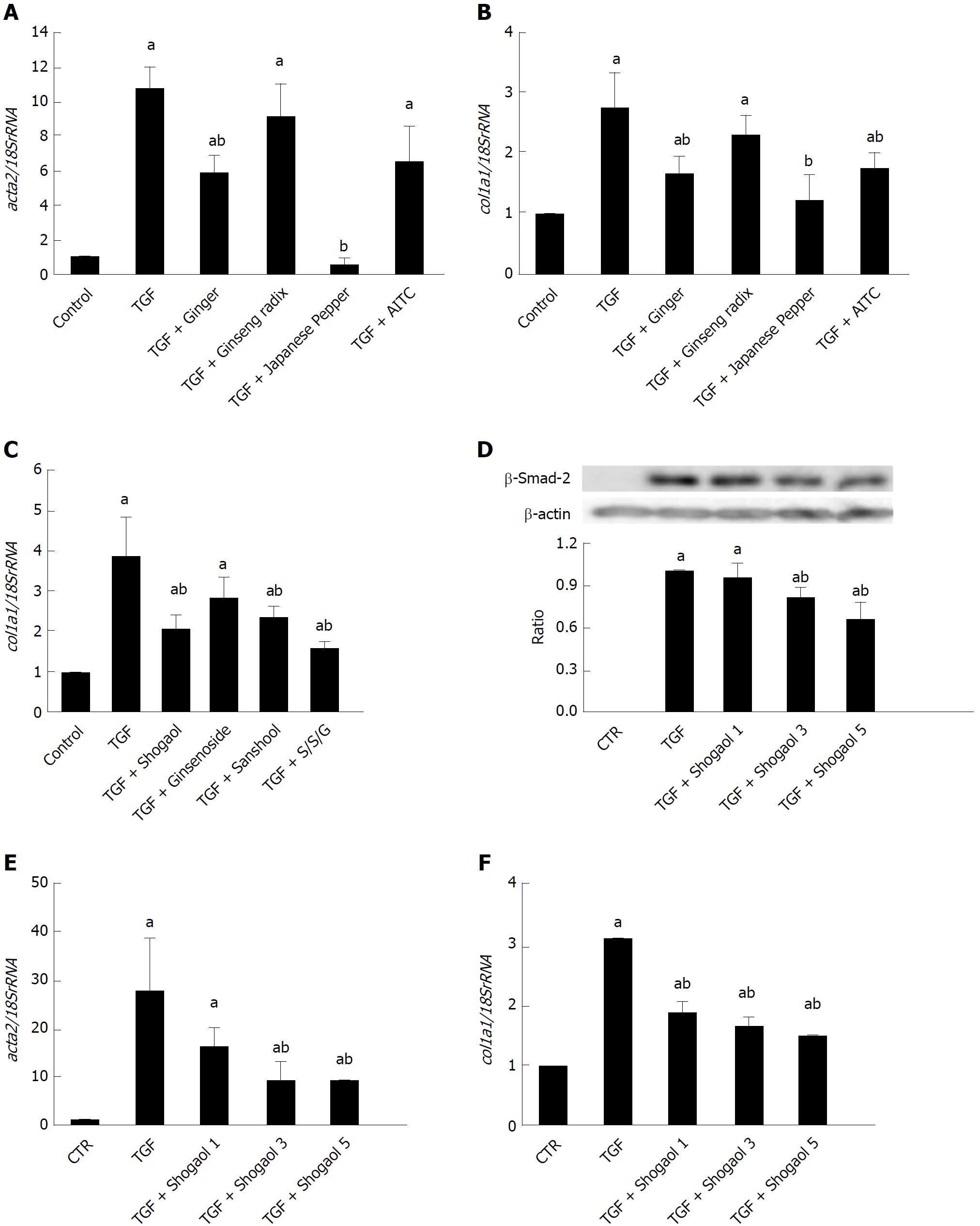Copyright
©The Author(s) 2018.
World J Gastroenterol. Sep 21, 2018; 24(35): 4036-4053
Published online Sep 21, 2018. doi: 10.3748/wjg.v24.i35.4036
Published online Sep 21, 2018. doi: 10.3748/wjg.v24.i35.4036
Figure 5 Daikenchuto components/ingredients suppress increased expression of α-smooth muscle actin and collagen by transforming growth factor-β1.
ACTA2 and COL1A1 mRNAs were quantified by real-time PCR in control and TGF-β1-treated (5 ng/mL, 24 h) InMyoFibs. A-C: DKT components Ginger (0.1%), Japanese pepper (0.1%) and Ginseng radix (0.1%) (A, B), and DKT ingredients 6-shogaol (10 μmol/L), hydroxy-α-sanshool (1 μmol/L) and ginsenoside Rb1 (100 μmol/L) (C) were co-administered with TGF-β1. AITC (10 μmol/L) was used as the reference of full TRPA1 activation; D: Phosphorylation of Smad-2 was measured by western blot analysis. 1, 3, or 5 μmol/L 6-shogaol was co-administered with TGF-β1. Relative expression of Smad-2 protein (normalized to β-actin) in TGF-β1-treated cells is shown as the ratio of the two in the histogram; E and F: COL1A1 and ACTA2 mRNAs were quantified by RT-PCR in TGF-β1 treated InMyoFibs and normalized to 18S rRNA. 1, 3 or 5 μmol/L 6-shogaol was co-administered with TGF-β1. aP < 0.05 vs control cells; bP < 0.05 vs TGF-β1-treated cells (n = 4). TGF-β1: Transforming growth factor-β1; InMyoFibs: Intestinal myofibroblasts; DKT: Daikenchuto; AITC: Allyl isothiocyanate; TRPA1: Transient receptor potential ankyrin 1.
- Citation: Hiraishi K, Kurahara LH, Sumiyoshi M, Hu YP, Koga K, Onitsuka M, Kojima D, Yue L, Takedatsu H, Jian YW, Inoue R. Daikenchuto (Da-Jian-Zhong-Tang) ameliorates intestinal fibrosis by activating myofibroblast transient receptor potential ankyrin 1 channel. World J Gastroenterol 2018; 24(35): 4036-4053
- URL: https://www.wjgnet.com/1007-9327/full/v24/i35/4036.htm
- DOI: https://dx.doi.org/10.3748/wjg.v24.i35.4036









